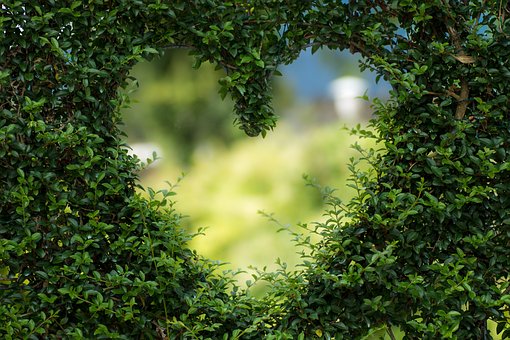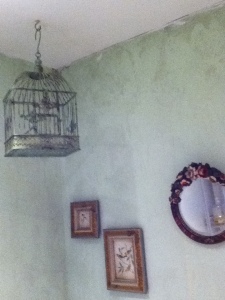 Here we are in March, getting on for a quarter of the way into 2019, and I’m getting a feel for what this year is all about – for me, anyway. This seems to be the Year of the Heart.
Here we are in March, getting on for a quarter of the way into 2019, and I’m getting a feel for what this year is all about – for me, anyway. This seems to be the Year of the Heart.
When I first moved to Glastonbury (known in some circles as the Earth’s Heart Chakra, although I didn’t know that at the time,) ten years ago, I’d neatly packaged my heart away – stuffed it deep inside myself and decided that just surviving from day-to-day would be a major achievement. In those early days, it was. I’d been – I felt then – betrayed, abandoned and let down by just about everyone and everything I’d given my heart to and for the first few months, those betrayals just kept coming, thick and fast.
I remember renting a tiny annexe behind a shop with my fast-dwindling savings, rooting around in the short-dated reduced items at the supermarket and having no income, no prospects and no friends here. It was a true dark night of the soul which lasted well into 2009.
 Eventually I stopped wallowing in self-pity and reached out to others for help. I found a lovely, intuitive life-coach who helped me to heal my dried-up, fragile, damaged heart, to begin to love myself and to expect and accept the love of others. That turned my life around. Soon I felt resilient, hopeful and learned to put out to the Universe for what I needed and wanted. Paid work, new opportunities, acquaintances and friends soon appeared. By the end of 2009, I was in a better place than I could ever have imagined and life was good.
Eventually I stopped wallowing in self-pity and reached out to others for help. I found a lovely, intuitive life-coach who helped me to heal my dried-up, fragile, damaged heart, to begin to love myself and to expect and accept the love of others. That turned my life around. Soon I felt resilient, hopeful and learned to put out to the Universe for what I needed and wanted. Paid work, new opportunities, acquaintances and friends soon appeared. By the end of 2009, I was in a better place than I could ever have imagined and life was good.
It was around New Year of 2018 that I agreed with the Universe that I was now stable enough and ready for the next phase – for new challenges.
They arrived.
It was not an easy time. I needed to stop sitting in front of my computer pondering metaphysical conundrums and to get up and deal with very physical problems. It was all lower chakra stuff – root survival and safety for people I loved, followed by the gut-wrenching sacral issues connected to parenthood and the deepest emotional ties. Depression and anxiety ricocheted around my family. Gradually issues of power and control surfaced. I worked to establish and maintain a safe and fair life for those who had lost everything, helping them to regain their inner sun. It took bravery and resilience I didn’t realise I’d built up, but that’s the way life works. We don’t get the challenges until we are ready to cope with them.
Then it was back to Glastonbury – back to the heart, in every way you can imagine.
Two people very close to me have had their lives changed by heart disease in these past few months. In both cases it was very sudden, very unexpected and is throwing up massive challenges to their lives. It brings up issues of mortality, of independence and dependency, of life-changing choices and ways of managing day-to-day.
At the same time, a friend and I have been working our way through Gregg Braden’s ‘Human by Design’ book and some workshops based around this. It’s all about using the heart’s intelligence – the ‘little brain in the heart’ – and aligning it with our mental processes.
 Then, as the final piece to the puzzle, I realised (as I said in my last post) that my ‘muses’ – the spirit guides, channelled messages and special intuitive humans I’d come to rely on for answers were closing the doors. I tried one last time to contact Koimul, the Spirit Guide/s who helped me through so many difficult times.
Then, as the final piece to the puzzle, I realised (as I said in my last post) that my ‘muses’ – the spirit guides, channelled messages and special intuitive humans I’d come to rely on for answers were closing the doors. I tried one last time to contact Koimul, the Spirit Guide/s who helped me through so many difficult times.
JAN YOU CAN PICK UP ALL YOU NEED IN YOUR HEART
I was told. And when I asked why they were all moving away and leaving us alone, I was simply told,
YOU HAVE ALL YOU NEED FROM US
When I asked if they would return, there was no answer. The crystal pendulum swung in a wide, empty circle, indicating that there would not be a reply to that.
So we lovingly took our leave of one another. Now I need to trust that my heart and heart chakra are ready and strong enough to move me on through the twists and turns of this new chapter in my game of life. They are, or I wouldn’t have brought myself here.
 I’m aware that I’ve gained a few new followers recently – thank you so much and welcome to my ramblings and wonderings – so I thought it might be a good time to briefly explain the William connection before launching into another post about him and autistic spectrum perception.
I’m aware that I’ve gained a few new followers recently – thank you so much and welcome to my ramblings and wonderings – so I thought it might be a good time to briefly explain the William connection before launching into another post about him and autistic spectrum perception. So yes, to begin with I believed my role was to teach William to communicate. He had oral dyspraxia, which meant he had a very limited range of speech sounds. Additionally he was on the autistic spectrum, which meant that social communication – reading body language, facial expressions, tone of voice etc. was challenging for him. He made excellent progress, no denying that. However at the same time, he and a couple of his classmates began teaching me other ways of communicating – ways I’d never dreamed of.
So yes, to begin with I believed my role was to teach William to communicate. He had oral dyspraxia, which meant he had a very limited range of speech sounds. Additionally he was on the autistic spectrum, which meant that social communication – reading body language, facial expressions, tone of voice etc. was challenging for him. He made excellent progress, no denying that. However at the same time, he and a couple of his classmates began teaching me other ways of communicating – ways I’d never dreamed of. Once they had learned to speak clearly and to follow the conventions of conversation, my little students more-or-less ceased using their telepathy. Our society places great value on effective spoken and written language. The children – Will included – worked diligently to improve these. I was busily congratulating myself on our success and only dimly aware of what we had lost in the process.
Once they had learned to speak clearly and to follow the conventions of conversation, my little students more-or-less ceased using their telepathy. Our society places great value on effective spoken and written language. The children – Will included – worked diligently to improve these. I was busily congratulating myself on our success and only dimly aware of what we had lost in the process. Many autistic people demonstrate a good level of competency with computers – likely to be linked to their operation depending on clearly defined protocols and mathematics, things which are very different to how social communication and interaction works. Most communication between people which occurs via computers is in a written format, offering a greater similarity with the clearly defined operating protocols of a computer, since written communication often takes a more formal and literal interpretation of language than face to face communication. This also removes the need to attempt to understand body language and tone of voice – things often problematic for those with autism.
Many autistic people demonstrate a good level of competency with computers – likely to be linked to their operation depending on clearly defined protocols and mathematics, things which are very different to how social communication and interaction works. Most communication between people which occurs via computers is in a written format, offering a greater similarity with the clearly defined operating protocols of a computer, since written communication often takes a more formal and literal interpretation of language than face to face communication. This also removes the need to attempt to understand body language and tone of voice – things often problematic for those with autism.



 arm and beauty it needed.
arm and beauty it needed.


